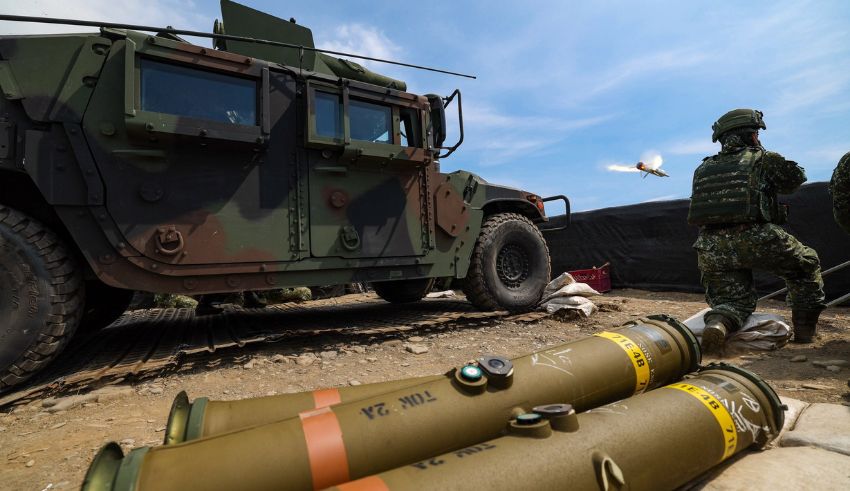
Last updated on August 30th, 2024 at 03:22 pm
Following alarming outcomes in previous drills, Taiwan’s military is about review the use of US-made anti-tank missiles. The choice follows findings showing that the weapons, vital for Taiwan’s defense against possible Chinese assault, showed less than expected precision during the drills. The forthcoming conference emphasizes Taiwan’s value in making sure its military hardware is completely operational and efficient in front of rising regional tensions.
Low Accuracy in Current Exercises
Aimed at familiarizing Taiwanese troops with the tube-launched, optically tracked, wire-guided (TOW) 2A missiles, a main component of the island’s anti-tank defenses, the drills in issue were carried out earlier this week. Supplied by the United States, these weapons complement Taiwan’s larger military might strengthening against the likelihood of a Chinese invasion.
But the outcomes of the two-day workout begged questions. Only seven of the seventeen TOW missiles fired precisely reach their intended targets, a success rate that has caused worries inside Taiwan’s Ministry of National Defense. Acknowledging the problem on Wednesday, the Ministry said, according to Taiwan News, plans to review the missile usage.
Uncertainty About the Source
The low strike rate has spurred discussion on whether operators or the missiles themselves are the source of the issue. Dependent mostly on the operator’s ability to guide the missile to its target using optical tracking and wire guidance, the TOW missile system, a mainstay of anti-tank combat for decades, Any accuracy problems could thus result from either mechanical breakdown or human mistake.
The forthcoming military conference probably will concentrate on determining the underlying source of the accuracy issues. This will entail a thorough investigation of the missile systems applied during the drills as well as an evaluation of the personnel’s training and expertise running them.
Anti-tank Missiles: Strategic Value
Given Taiwan’s continuous worries about China’s military aspirations, the TOW 2A missiles are an important component of the country’s defense plan. With China’s increasing military presence and regular drills close to Taiwan, the island has been strengthening its defenses—including by acquiring modern weaponry from the United States.
Designed to provide a significant deterrent against armored incursions—a major threat in every possible invasion scenario—anti-tank missiles like the TOW 2A are Therefore, the military planning of Taiwan depends much on ensuring that these weapons are dependable and efficient.
Ahead: Review and Possible Changes
Several things could happen as Taiwan’s military gets ready for its conference to go over the findings of the previous drill. Should the problem prove to be with the missiles themselves, Taiwan might look at other systems or ask technical help from the United States. Conversely, should operator mistake be found to be the primary cause, this could result in more intensive training courses or changes in the manner these exercises are carried out.
This reassessment emphasizes Taiwan’s more general difficulties keeping a strong defensive posture in the face of a changing security scene. Taiwan’s military has to make sure that its forces are equipped with dependable and efficient weaponry systems and that its soldiers are completely ready to employ them under the most demanding circumstances as regional tensions show no indications of lowering.
A vital first step in resolving possible flaws in Taiwan’s military policy is its determination to review its employment of US-made TOW 2A anti-tank missiles following the recent drills. Ensuring the efficacy of its weapons is crucial as the island keeps strengthening its military capacity against the background of rising dangers from China. The next assessment will not only decide how these missiles will be used going forward but also represent Taiwan’s larger will to keep a strong and credible defense in a region growingly unstable.























